News
Ekiti 2018:NEC Declares Kayode Fayemi Winner

Candidate of the All Progressives Congress, Kayode Fayemi, has won the Ekiti State governorship election.
Fayemi defeated current Deputy Governor of the state and candidate of the Peoples Democratic Party, Kolapo Olusola, and over 30 others in a keenly contested election.
He was victorious in 11 out of the 16 local government areas of the state, polling 197,459 votes, and edging out his closest rival Olusola who got 178,121 votes by 19,338 votes.
Based on the votes secured, INEC’s Chief Returning Officer for the election, Professor Idowu Olayinka, declared Fayemi the winner.
Saturday’s election was highly anticipated as it pitted both the APC and Fayemi against one of their biggest critics and a key member of the opposition.
The buildup to the election was filled with drama and heightened expectations but led to fears of violence, with more than 30,000 policemen eventually deployed to provide security.
It, however, started rather smoothly with electoral materials and officials getting to polling units visited by our correspondents on schedule.
In Ado-Ekiti, the state capital, there was a large turnout of voters and more than 60,000 people eventually voted there, the largest votes cast in a local government during the election.
Apart from reports now and then of card reader malfunction, one of the first issues to pop up was the allegations of cash inducements by observers and party agents.
A few hours into the start of the election, the police arrested some persons for allegedly distributing cash to voters.
By midday, both Fayemi and Olusola had suffered hitches at their polling units.
In the case of Fayemi, the card reader smoothly read his PVC enabling him to vote but it failed to read that of his wife and it took several attempts before she got to vote.
After voting, the former Ekiti governor told reporters he was confident of victory and that the day will be celebrated.
In the case of Olusola, the card reader failed to recognise his card when he tried to vote at his polling unit – Ofomofuru Hall, Ward 2, Okokuru in Ikere-Ekiti.
He only got accredited to vote after INEC National Commissioner, Anthonia Simbini, intervened.
Both candidates did not dwell on the hitch, however, with the focus more on voter inducement and intimidation.
The victory puts Mr Fayemi on course for a second term as governor of the state, an ambition he failed to achieve in 2014 when he was defeated by Governor Ayodele Fayose.
Fayemi had gone on to head the Policy, Research and Strategy Directorate of the APC’s Presidential Campaign for the 2015 election before becoming Minister of Mines and Steel Development.
Fayose, whose administration repeatedly accused Fayemi’s administration, was keen to ensure that his deputy succeeds him and that Ekiti remains under the leadership of the PDP.
When he came out to vote, the governor repeated his calls to supporters of the PDP to vote and protect their votes.
Although it was a close contest, Fayemi and the APC prevailed

News
Singer TIME Drags Georgina Onuoha Over Comment on Davido’s Father’s Reaction to Paternity Saga

Nigerian singer, TIME has publicly called out Nollywood actress Georgina Onuoha following her criticism of Davido’s father, Dr. Adedeji Adeleke, over his reaction to the ongoing paternity controversy involving the Afrobeats superstar.
The drama began after Georgina Onuoha questioned why Davido’s father appeared to defend his son amid allegations that he welcomed a child with a woman identified as Anu Adeleye. In a post shared online, the actress described Davido as “irresponsible,” sparking mixed reactions across social media.
Reacting to her comment, TIME took to X (formerly Twitter) to drag the actress, accusing her of ignoring key details surrounding the case. He referenced statements made by Davido, noting that he had never met the said lady before the first DNA test, and questioned why people were not discussing other individuals mentioned in the saga.
“Madam Georgina, did you hear the part Davina said she’d never met her prior to the first DNA test? Why are y’all not talking about the bank official the girl mentioned to Dr. Sikiru Adeleke?” TIME wrote.
According to reports, Aanu’s mother has been identified as Grace Ayotomide Labinjoh, who has consistently maintained that Davido is her daughter’s biological father despite the singer and his family denying the claim.
TIME’s remarks triggered a fresh wave of debate online, with some social media users backing him for defending Davido’s family, while others accused him of unnecessarily attacking Georgina Onuoha.
As the paternity saga continues to trend, the clash between TIME and Georgina Onuoha has added another layer of controversy, keeping Davido and his family at the center of public discourse.





News
Nasarawa ADC Suspends State Chairman Over Alleged Anti-Party Activities, Sets Up Disciplinary Committee
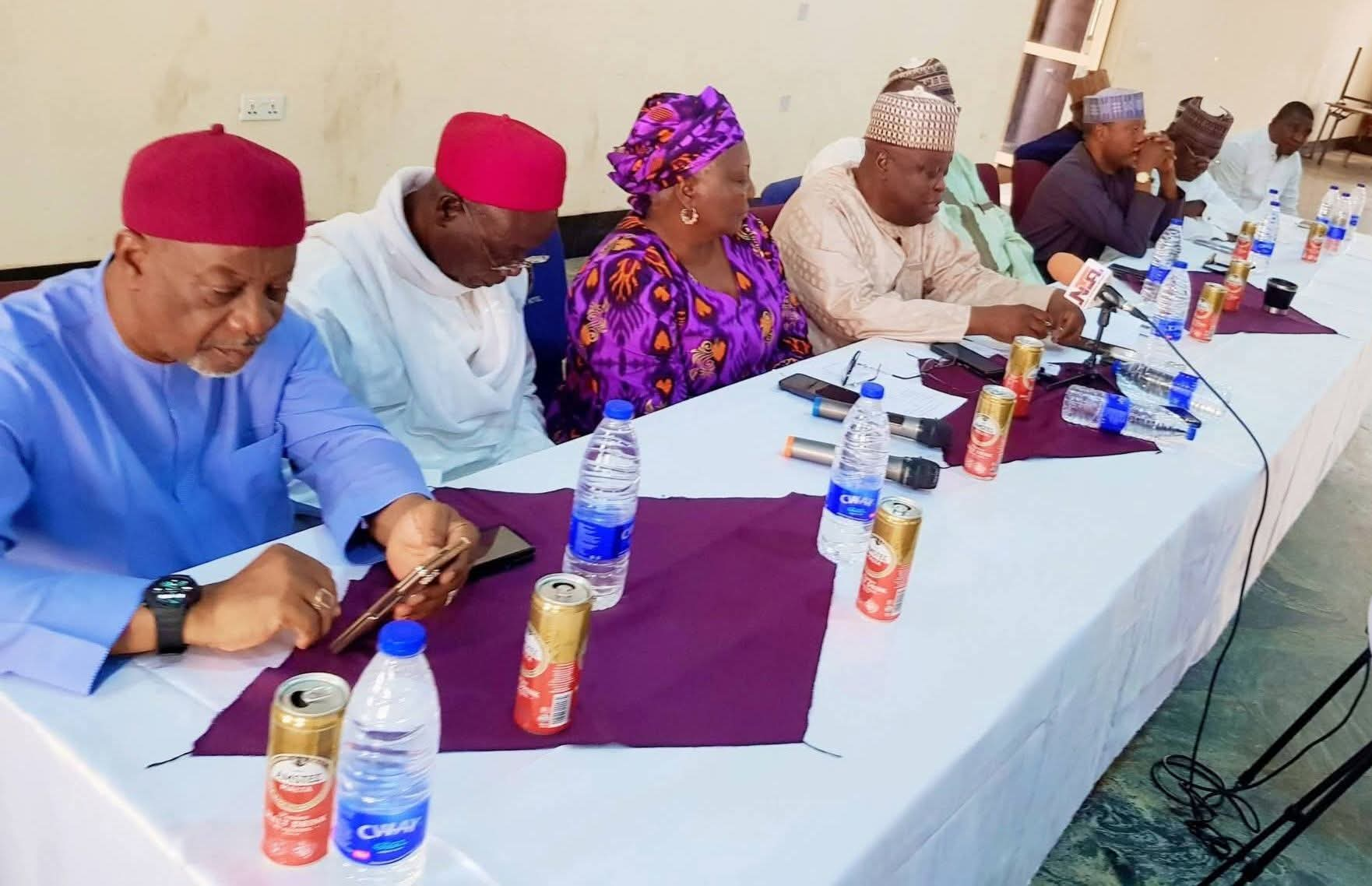
The African Democratic Congress (ADC) in Nasarawa State has suspended its State Chairman, Godwin Alaku Williams, over alleged involvement in anti-party activities.
The suspension was approved by the party’s Transitional Leadership Team (TLT) following a petition accusing Williams of actions deemed harmful to the unity and progress of the party in the state.
The decision was taken at a TLT meeting held on Wednesday at Otunsha Hotel, Keffi, and presided over by the party leader, Chief John Michael Abdul.
In a statement issued by the party’s spokesperson, Comrade Idris Ojoko, the suspension will last for 14 days, pending investigation and the outcome of proceedings by a disciplinary committee constituted by the TLT.
Ojoko also announced the appointment of Barrister Paul Magaji Ajeh, formerly the State Secretary, as Acting State Chairman, while Umar A. Babayaro has been named Acting Secretary.
According to the statement, the allegations against Williams include his alleged refusal to recognise the party’s National Working Committee (NWC) led by Senator David Mark, and his failure to integrate coalition members into the ADC party structure in Nasarawa State.
Other accusations include allegedly reporting some party leaders to the Independent National Electoral Commission (INEC), the Department of State Services (DSS), and the Nigeria Police, describing them as impostors.
Williams is also accused of constituting parallel party organs at various levels within the state, interfering with the establishment of party offices at the state, local government, and ward levels contrary to NWC directives, and disrupting the ongoing membership registration and revalidation exercise.
Meanwhile, Ojoko announced the formation of a disciplinary committee chaired by Barrister Hassan Yakubu. Other members include Amina Zanwa, Mamman Sunday, and Yunus Abdullahi Sidi, with Gaza Mark Auta serving as Secretary.
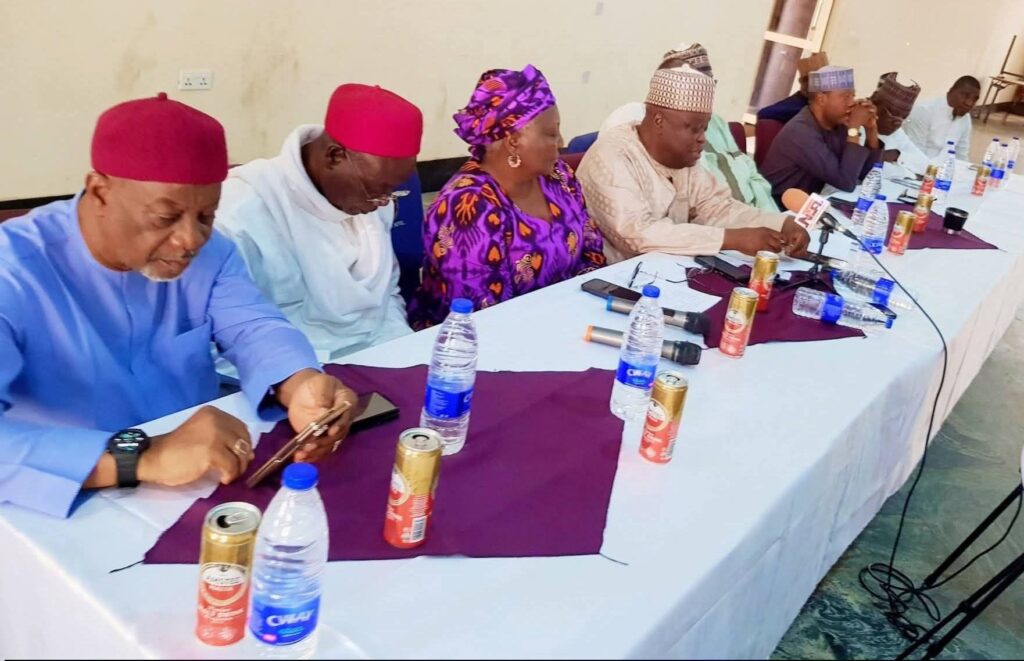
News
Tears as Chief Imam of Ilorin Laid to Rest, Fidau Scheduled for Sunday
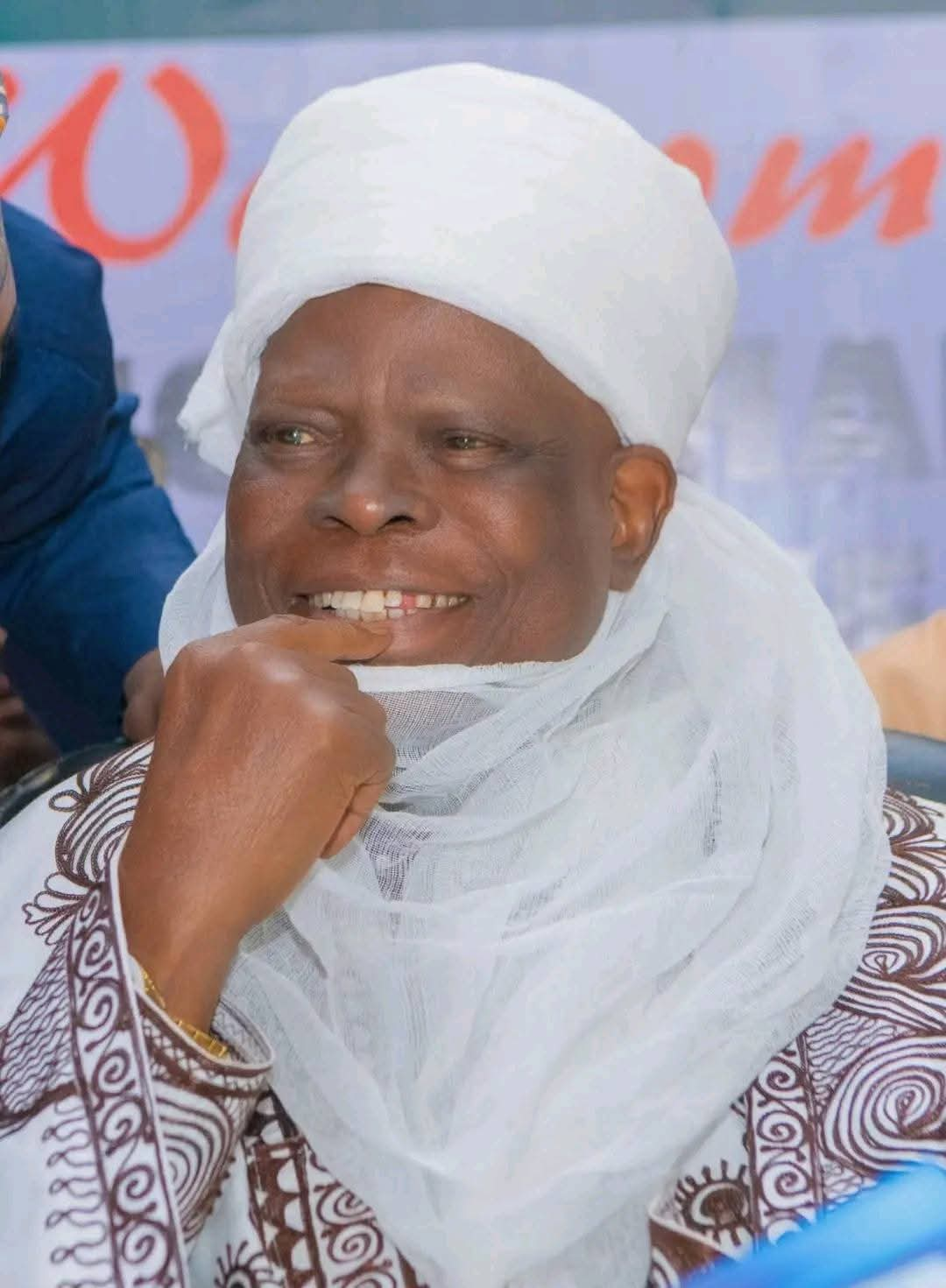
Tears flowed freely on Tuesday as thousands of Muslim faithful gathered at the Emir of Ilorin’s palace for the final burial of the Chief Imam of Ilorin and Chairman of the Kwara State Council of Ulama, Sheikh Muhammad Bashir Soliu.
The solemn funeral prayer (Janazah) began at 10:00 a.m., led by the Imam Imale of Ilorin, Sheikh Abdullahi Abdulhameed. The palace forecourt was filled to capacity, with security personnel managing the massive crowd that had come to pay their last respects to the revered Islamic scholar.
The event drew prominent figures from political, religious, and social spheres, including former Senate President Dr. Abubakar Bukola Saraki, former PDP National Secretary Alhaji Kawu Baraje, former Speaker of the Kwara State House of Assembly Professor Ali Ahmad, former Director of Nigeria’s Rural Electrification Agency Engineer Bolakale Kawu, and the Kwara State Governor’s representative, Saadu Salaudeen.
Notable Islamic scholars and traditional rulers also attended, including Balogun Alanamu, Dr. Usman Abubakar Jos, Chief Imam of Offa Sheikh Muhyidin Salman Hussein Al-Imam, Ajanasi Agba of Ilorin Sheikh Mujtabah Yusuf Bature, Chief of Ogbomoso Alhaji Dr. Imam Yunus Teliat Olushina Ayilara II, and Grand Mufti of Ilorin Sheikh Faruq Onikijipa, among others.
Sheikh Soliu passed away on Monday at the age of 75, leaving behind a legacy of Islamic scholarship, leadership, and service to the Ilorin Emirate and the broader Muslim community.
Following the Janazah, his body was conveyed to his residence in Egbejila, which also houses his Arabic school, where thousands gathered for the final rites and prayers. At the graveside, clerics offered heartfelt supplications for the forgiveness of his soul and entry into Al-Jannah Firdaus, as mourners wept openly, remembering him as a spiritual father, teacher, and moral compass.
Sheikh Soliu is remembered for his humility, deep knowledge of Islam, and unwavering commitment to peace, unity, and religious guidance in Kwara State and beyond.
As part of post-burial rites, the Emir of Ilorin and Chairman of the Kwara State Traditional Rulers Council, Alhaji (Dr.) Ibrahim Sulu-Gambari, CFR, announced that the Fidau prayer for the late Chief Imam will hold on Sunday, January 25, 2026, at 10:00 a.m. at the Ilorin Central Mosque. The prayer will be led by Imam Imale Sheikh Abdullahi Abdulhamid, alongside other clerics from within and outside the Emirate.
In a statement, the Emir urged Muslims across the region to intensify prayers for the departed Imam Agba of Ilorin, asking Allah to grant him Al-Jannah Firdaus.
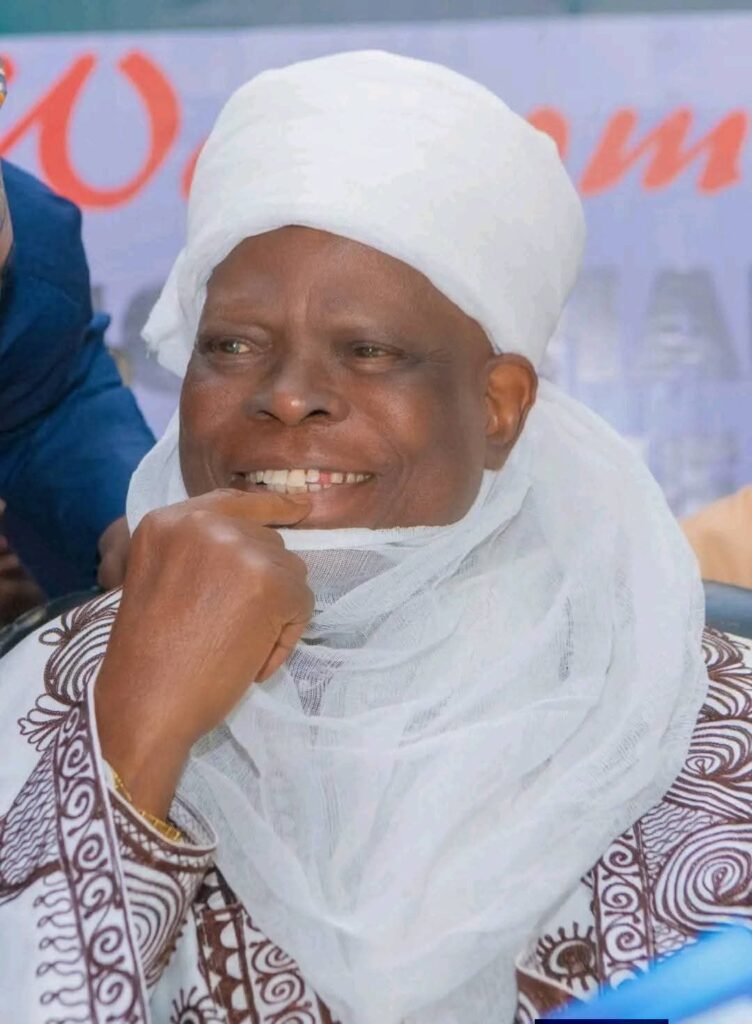
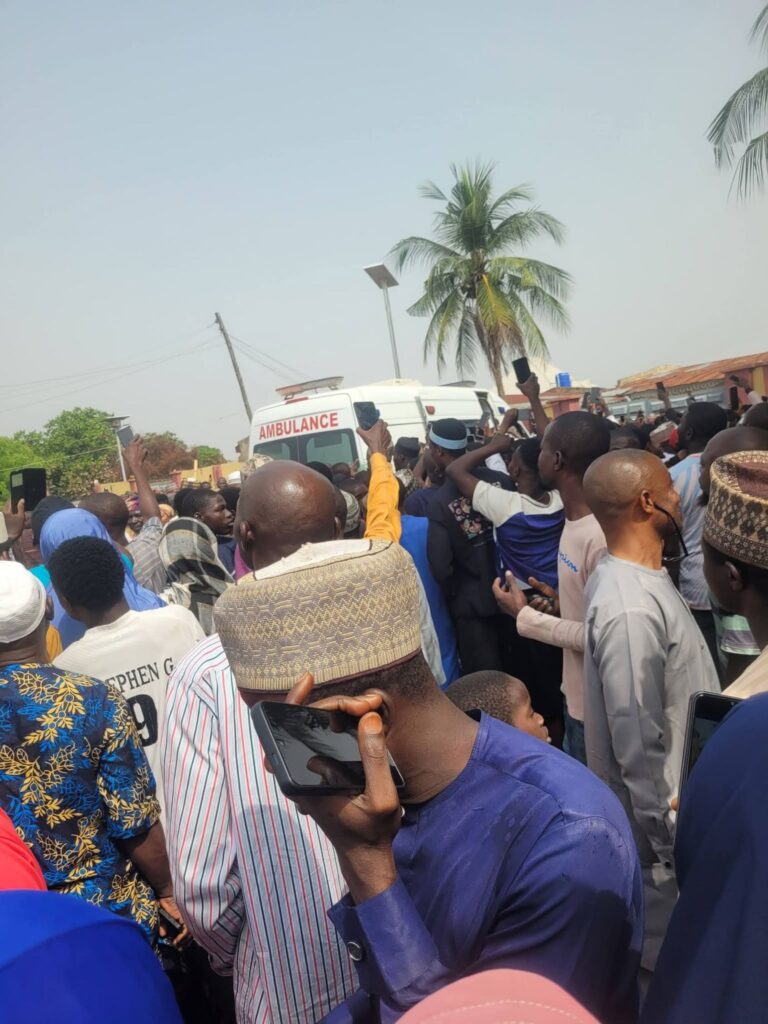


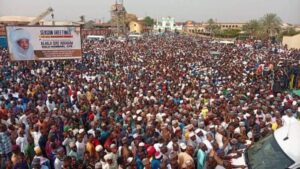

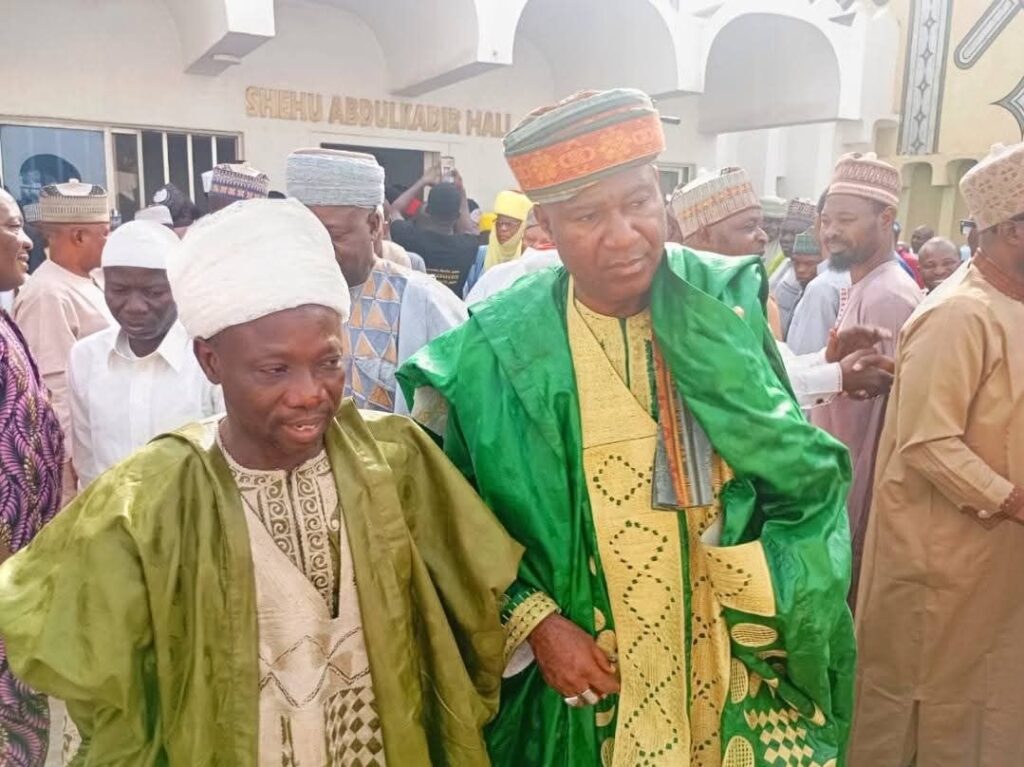
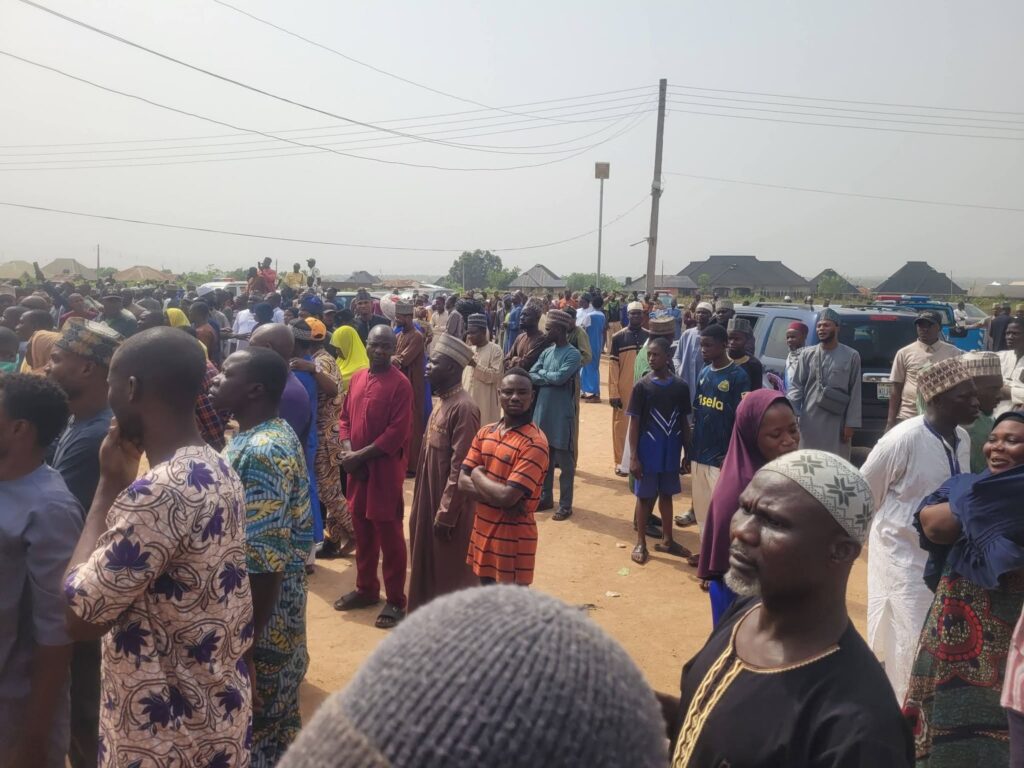
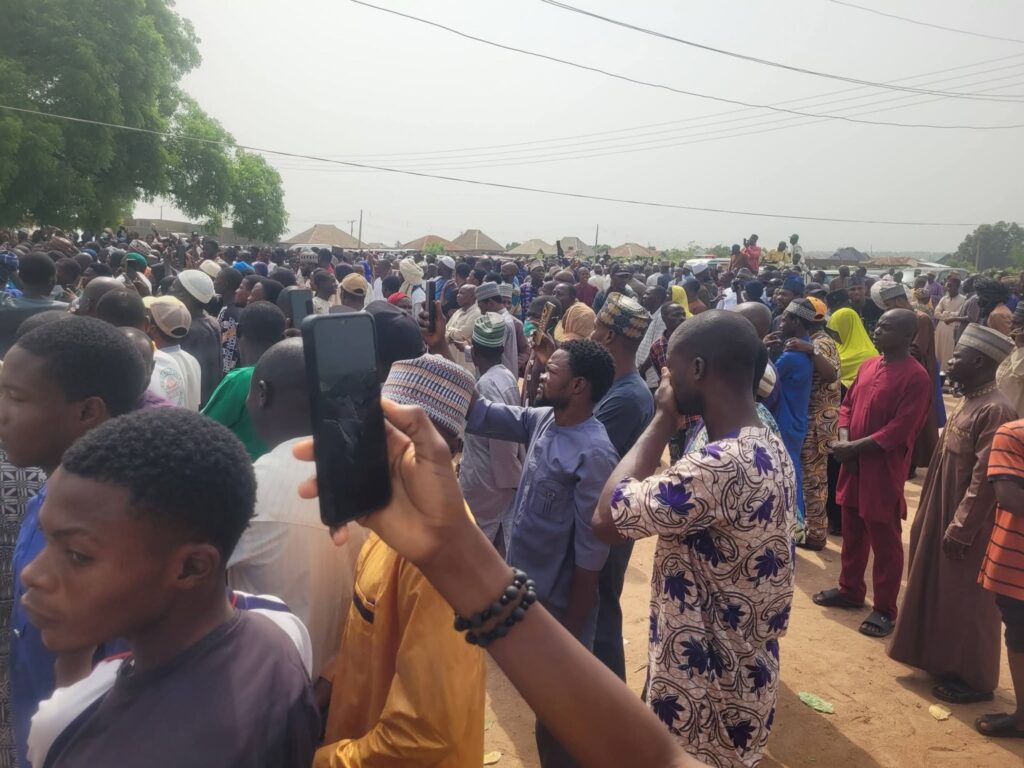

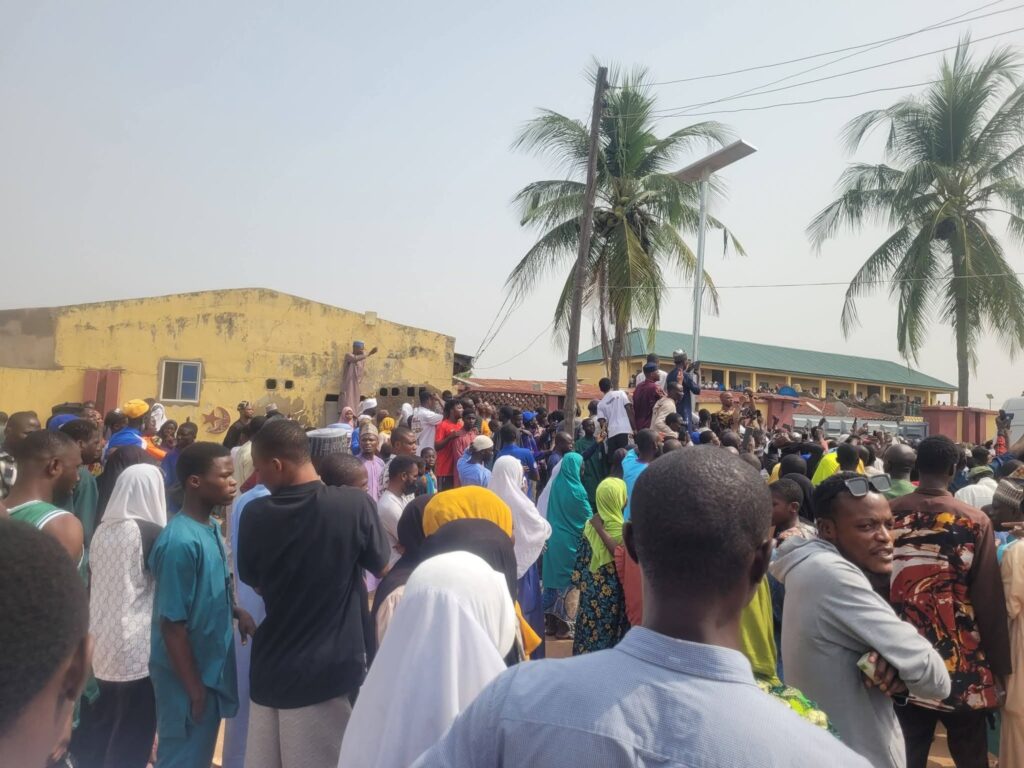
-

 News2 years ago
News2 years agoHardship: We Plan To Establish A National Commodity Board To Crash Food Prices – VP Shettima
-
News8 years ago
Blog Reader; Samson Osagiede Celebrates Fiancè Benedicta Daniels’s Birthday With Sweet Words
-
Home9 years ago
News Channel claims Donald Trump is an orphan from Pakistan,share alleged childhood photo
-
Home9 years ago
Another $175m Found in Patience Jonathan’s wife’s firm’s Bank Account
-
Home9 years ago
Oil Spillage: House of Reps Member Shares Photos of the Water her Constituents Drink .
-
Home9 years ago
Zara Buhari & Ahmed Indimi’s Wedding Access Card
-

 Sport7 years ago
Sport7 years agoModric, Marta Wins 2018 FIFA Best Player Of The Year Awards ⚽️
-
News8 years ago
The Best Video You’ve Seen Today?
